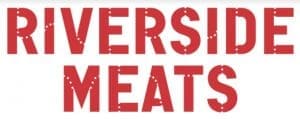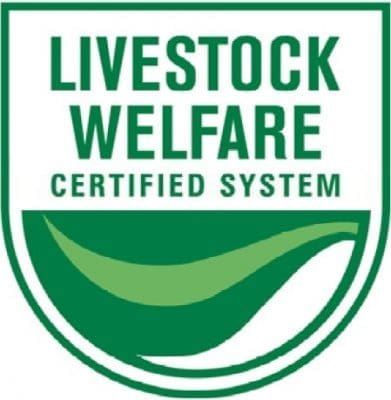VICTORIAN meat regulator PrimeSafe has sanctioned Echuca abattoir operator Riverside Meats over worker treatment of sheep, calves and pigs after the release of video evidence by Animals Australia.
PrimeSafe initiated an investigation after receiving a complaint on October 25 this year that included images and observations alleging poor animal welfare at the Echuca abattoir.
 Victoria’s Chief Veterinary Officer Charles Milne was asked by PrimeSafe to investigate the complaint and Minister for Agriculture Jaala Pulford said he will lead an additional investigation by Agriculture Victoria to identify whether any breaches of the Prevention of Cruelty to Animals Act 1986 have occurred and if so, to determine what further action should be taken.
Victoria’s Chief Veterinary Officer Charles Milne was asked by PrimeSafe to investigate the complaint and Minister for Agriculture Jaala Pulford said he will lead an additional investigation by Agriculture Victoria to identify whether any breaches of the Prevention of Cruelty to Animals Act 1986 have occurred and if so, to determine what further action should be taken.
Animals Australia has also written to Ms Pulford calling for the introduction of CCTV cameras in all abattoirs and for footage to be independently monitored, with full online streaming access available to enforcement authorities.
Ms Pulford said many groups have advocated for mandatory CCTV in Victorian abattoirs and some already have it.
“I will consider this as part of the reform of animal welfare legislation that has been foreshadowed in the draft action plan for improving animal welfare in Victoria.”
Victoria enforces mandatory national standards, including those for animal welfare. While CCTV is widely used in meat processing facilities, it is not a requirement of mandatory animal welfare standards.
Four Riverside Meats staff removed
From viewing the videos, PrimeSafe identified non-compliance with Australian standards and directed that four staff be immediately removed from their roles.
Ms Pulford said cruelty in any form is completely unacceptable, illegal and a blight on hard-working farmers and the broader industry.
She said the video footage showed “inexcusable behaviour” by Riverside Meats staff and PrimeSafe had identified breaches of the mandatory welfare standards.
“Weekly audits have been ordered until Riverside Meats can demonstrate compliance with Australian standards. I remain concerned by the nature and seriousness of these allegations,” she said.
PrimeSafe said it was provided with 170 hours of video that showed:
- activities that are not compliant with mandatory standards and for which sanctions have been put in place,
- poor animal handling that is not best practice,
- no activity, duplication or edited material, and
- activities at the abattoir that are compliant with standards.
PrimeSafe’s directions and sanctions encompassed modifications to infrastructure, equipment and procedures, training of staff, ongoing management and monitoring of animal welfare, and concentrated ongoing regulatory oversight.
Animals Australia provided with video
Animals Australia said it was provided with footage depicting “a catalogue of daily horrors” for pigs, cattle, sheep, goats and just days-old dairy calves at Riverside Meats in Echuca.
Animals Australia’s executive director Glenys Oogjes said there is an obvious culture of violence, disrespect and abuse of animals in the abattoir.
“The vision shows equipment designed to reduce suffering instead being used as torture devices inflicting dreadful cruelty,” she said.
More than 1200 video files submitted to PrimeSafe allegedly show:
- Calves and sheep viciously and repeatedly stabbed in the neck, face and head with the metal prongs of an electric stunning device,
- The routine misplacement of stunning equipment,
- Dairy calves and sheep escaping from restraint boxes and falling onto the kill floor, scrambling over dead and dying animals,
- Workers beating confused baby dairy calves to move them to slaughter and responding to fearful and panicked animals by beating them, swearing and laughing at them, and roughly throwing them back onto the kill table.
Riverside Meats was the subject of a government investigation in 2013, after Animals Australia presented evidence of dairy calves being beaten, thrown and shocked with electric prodders. The authorities gave formal warnings to some workers, the owners promised infrastructure and training upgrades, and PrimeSafe increased its audit regime.
Ms Oogjes said it was alarming that systemic and shocking practices had become entrenched at a facility that had already been investigated for animal cruelty.
“Fear and stress are already heightened for animals in the slaughterhouse environment so to increase their trauma and pain through incompetence and a ‘couldn’t care less’ attitude is disgraceful.
“Once again we are seeing that wherever eyes aren’t watching, animals are at risk of extreme cruelty,” Ms Oogjes said.
“Only the presence of independently monitored cameras will actively discourage workers from engaging in cruel behaviour and ensure management maintains proper oversight of employees and practices.”
A Riverside Meats spokesman originally said the company had no comment, but as outlined in today’s separate story, the company has since committed to installation of CCTV monitoring equipment.
AMIC supports cruelty investigations
The Australian Meat Industry Council said it and the broader meat processing sector took seriously matters of animal welfare.
In a statement issued earlier today, AMIC said it welcomed the investigation into animal welfare standards at a Victorian abattoir and shared concerns by Victoria’s Minister for Agriculture that standards may have been compromised in this instance.
In a second statement, AMIC rejected claims of ‘cultural issues’ relating to animal welfare in the meat processing industry.
“Recent comments by an independent processor that there is a ‘cultural issue’ across the meat industry regarding animal welfare are incorrect, and ignore the extensive work that has been undertaken to develop and implement animal welfare standards and training programs for industry participants,” the processor representative body said.
 On behalf of its members, AMIC sponsors an independently audited Animal Welfare Accreditation Scheme that has 61 meat processing operators currently accredited under the scheme. The scheme is open to all industry participants and AMIC implores all participants to comply with the standards prescribed by its scheme.
On behalf of its members, AMIC sponsors an independently audited Animal Welfare Accreditation Scheme that has 61 meat processing operators currently accredited under the scheme. The scheme is open to all industry participants and AMIC implores all participants to comply with the standards prescribed by its scheme.
Beef Central wrote about the launch of the program in this article in 2013.
More information regarding AMIC’s Animal Welfare Accreditation Scheme and other education and training programs available to all sector participants through MINTRAC can be found here.
